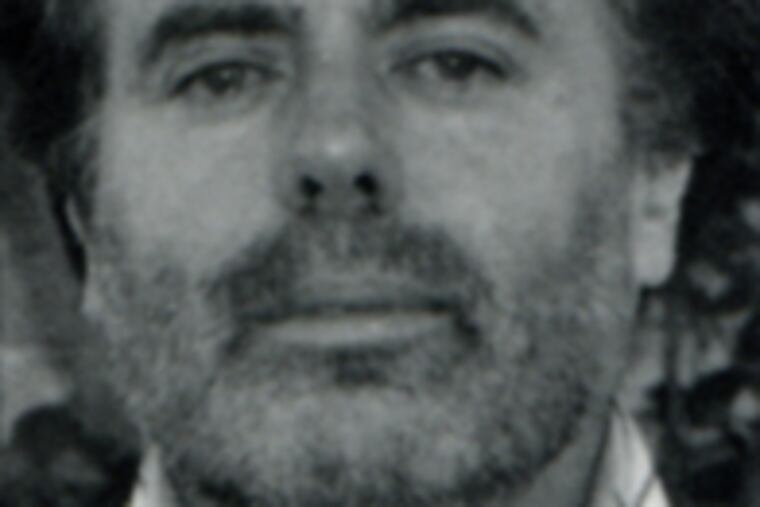Medieval poet an unlikely crime sleuth
Masterly inclusion of ideas at the core of murder thriller.

By Giulio Leoni
Translated by Anne Milano Appel
Harcourt. 321 pp. $25
nolead ends The great medieval poet Dante Alighieri would seem an unlikely gumshoe. He certainly proves to be an unusual one in Giulio Leoni's novel The Mosaic Crimes, which itself is as odd a thriller as you are likely to come upon.
The crimes Dante finds himself investigating take place in June 1300, shortly after the poet is elected one of the six Priors of Florence (the city was a republic, governed by a College of Priors). But the novel opens with a brief prologue set nine years earlier. The city of Acre in the Holy Land is falling to the Saracens, and a pair of monks manage to give the captain of one of the ships escaping the disaster a document intended for - you guessed it - the Knights Templar.
That, however - thank God - is the only point of resemblance between The Mosaic Crimes and The Da Vinci Code. Leoni's novel is beautifully written, thoroughly researched, and genuinely suspenseful on several levels.
The first of the two murders that figure in the tale takes place in a church not far outside the city. Ambrogio, a master mosaicist working to restore the church, has been found with his head encased in lime. After scoping out the scene, Dante stops on his way back to the priory at the shop of Teofilo Sprovieri, apothecary and physician - born, interestingly enough, in Acre - in the hope of getting something to ease the pain of the migraine that is tormenting him.
He gets his anodyne, a little something called chandu. Teofilo cautions the poet about the dosage: "Ten drops induce stupor and allay the most intense pain. . . . Twenty drops, and the mind rushes headlong into a delirium peopled with violent images. . . . More than twenty drops, and the gates of Paradise may open, but no one has ever visited Paradise alive." Dante takes 15 drops and finds himself on a pain-free ride through La-La Land.
A follow-up visit to the apothecary gets Dante an invitation to join Teofilo and some friends at a tavern run by a one-armed former Crusader named Baldo. In addition to the apothecary, the group consists of a theologian, an architect, an alchemist, an astrologer, a lawyer - and a sea captain. A former member, it turns out, is now deceased: the master mosaicist Ambrogio. The group calls itself the Third Heaven and plans on being the core faculty of a proposed Florentine university.
The gathering of scholars may pique Dante's curiosity, but it is the dancer Antilia - with her pantherlike movements and "the graceful beauty of an exotic bird" - who catches his eye and fires his lust (though he steadfastly insists to himself that his interest in her has to do only with his investigation).
Unlike most modern fictional sleuths, with their proletarian bona fides, Dante hasn't a democratic bone in his body. He's a snob, both intellectually and socially. In fact, he's a misanthropic crank sorely in need of anger management. A great poet, no doubt - and no one is more aware of this than he - but only a so-so human being.
Dante isn't the only reason The Mosaic Crimes isn't your usual mystery novel. That actually has more to do with Leoni's grasp of the central role ideas played in the period he writes of.
Cecco D'Ascoli, the astrologer, argues with Dante that human affairs are completely determined:
It has been established that the celestial bodies that orbit the heavens beyond the lunar sphere are perfect and incorruptible. If their motion were avoidable, it would be defective, and we would have an uncertain consequent from a certain antecedent, a perfect cause that gives rise to imperfect effects. And this is a contradiction from which our mind recoils. Ergo, our destiny is written in the stars to an exact degree.
Dante, however, is not about to abandon his belief in free will and human responsibility:
If we were to admit that the influence of the heavens on our natures is inevitable, the ethical framework that supports all of our laws and customs, even our moral sense itself, would crumble. . . . Master Ambrogio's death could thus be ascribed to the timeless revolutions of the planet, and the hand that brought it about would become merely an instrument, in no way responsible.
This debate is still with us, and it is in passages such as these that Leoni's book reminds us that we have more in common with the Middle Ages than simple murder and mayhem.